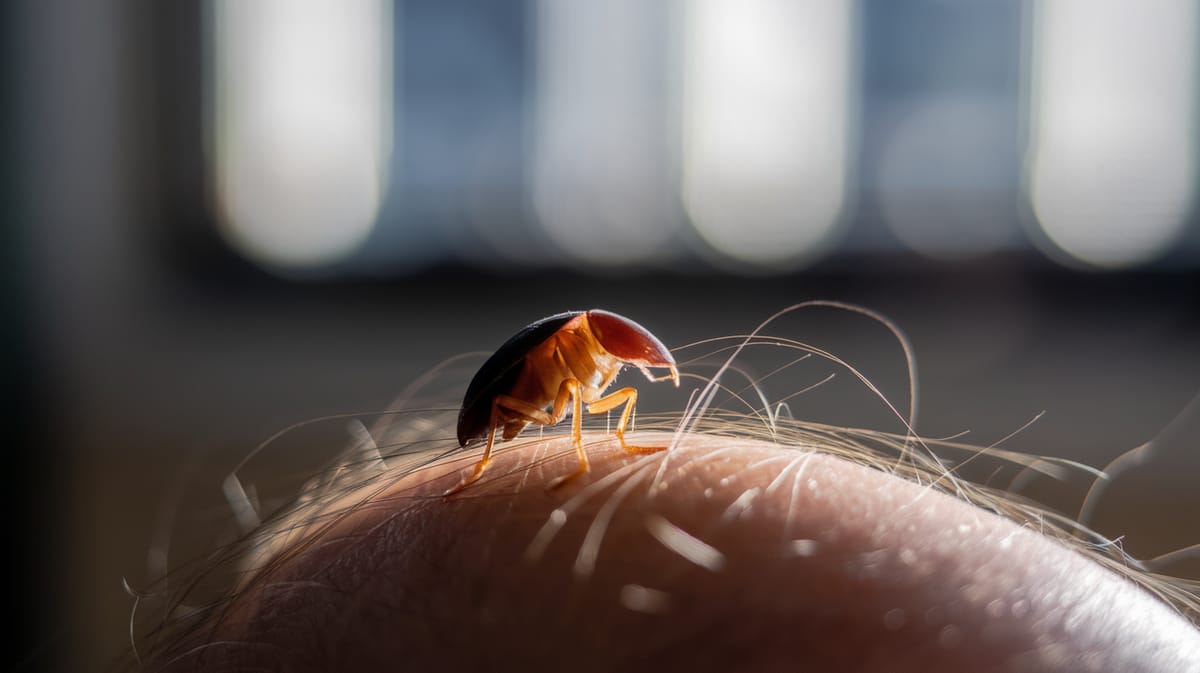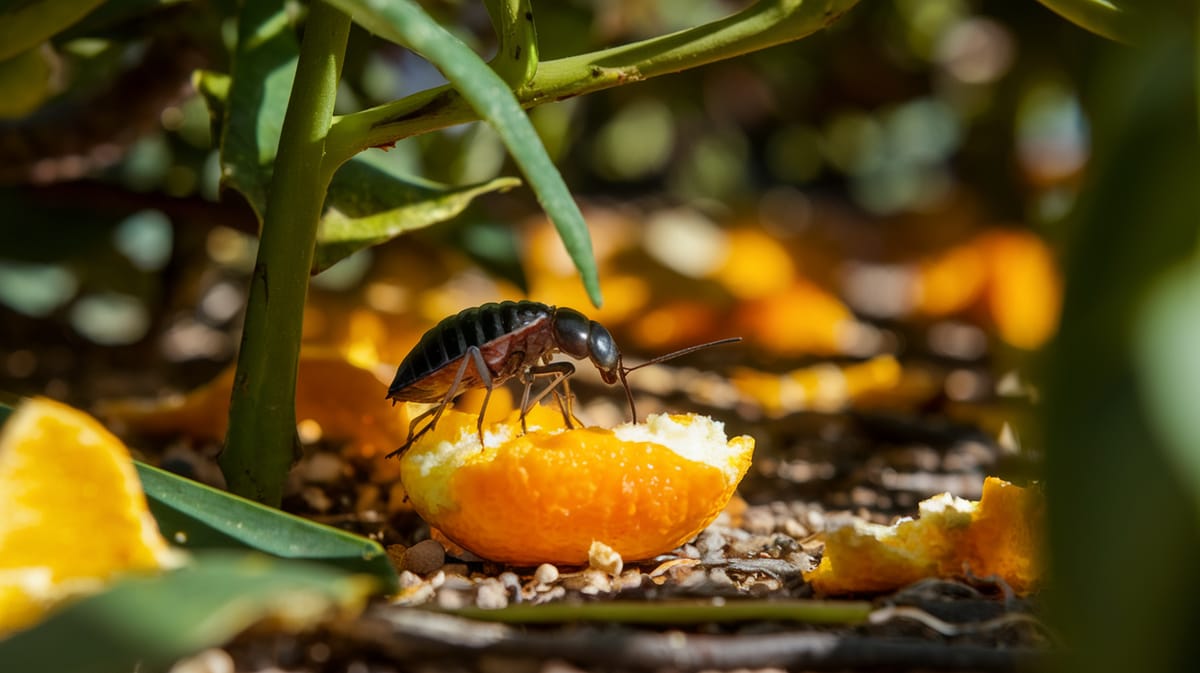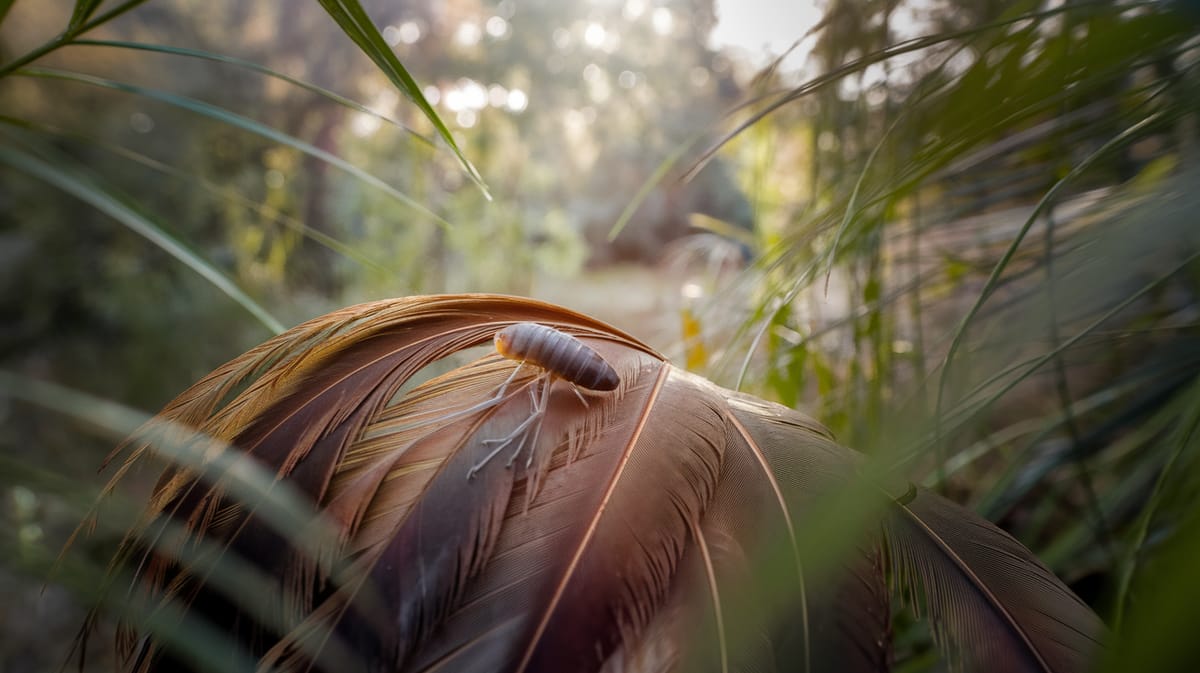Lice
Tiny but tenacious, lice are adaptable parasites thriving in diverse environments. Known for their rapid reproduction, they play a crucial role in the food chain.

Key Insights at a Glance
Did You Know?
Taxonomy & Classification
Lice are highly specialized parasites, adapted with specialized claws for gripping and a flat body for navigating through hair or feathers. Let's understand the evolutionary journey and classification of these remarkable parasites.
Species Diversity
With over 5,000 species globally, lice are found on nearly all bird and mammal hosts, exhibiting significant ecological adaptability.
Evolutionary Adaptations
Lice have co-evolved with their hosts for millions of years, developing unique adaptations to survive host-specific immune defenses.
Lifecycle and Growth
A remarkable journey of transformation from Egg to Adult.
Egg
Laid near the host's scalp, these oval eggs hatch quickly, ensuring rapid population growth in optimal conditions.
Nymph
Resembling smaller adults, nymphs feed on blood and molt three times before reaching maturity.
Adult
Adults reproduce prolifically, laying eggs daily to maintain the infestation and ensuring continuity of the life cycle.
Dietary Habits
A parasitic feeder with specialized adaptations, this insect relies on blood from mammals and birds as its primary sustenance.
| DIET TYPE | DESCRIPTION |
|---|---|
| Primary Diet | Primarily feeds on blood from its host, using sharp mouthparts to pierce the skin and access capillaries. |
| Secondary Diet | Occasionally consumes skin debris and feathers, supplementing its diet when blood meals are less accessible. |
| Occasional | In rare instances, may feed on blood from reptiles or other hosts if primary hosts are unavailable. |

Behaviour and Adaptations
Discover the fascinating adaptations that enable lice to thrive on their hosts.
Clinging Prowess
Claws and specialized legs ensure lice securely attach to hair shafts.
Efficient Feeding
Specialized mouthparts allow lice to efficiently feed on host blood.
Rapid Reproduction
Short life cycle with frequent egg-laying boosts population quickly.
Ecosystem Impact
Lice play a crucial role in maintaining ecological balance by interacting with various species in their environment.
Food Source
Lice serve as a primary food source for small birds and other insectivores.
Parasite Regulation
Lice help control bird populations by impacting host health and breeding.
Nutrient Recycling
Their waste products contribute to nutrient cycling in ecosystems.
Conservation Challenges
Addressing the significant threats to Lice populations and their survival.
Chemical Exposure
Pesticides disrupt lice habitats and reduce their numbers significantly.
Habitat Degradation
Urban development and land use changes lead to habitat loss for lice.
Climate Change
Altered weather patterns affect lice lifecycle and distribution.
Frequently Asked Questions
How long do Lice live?
Lice typically live for about 30 days on a host. Without a host, they can only survive for one to two days. Their lifecycle includes three stages: egg (nit), nymph, and adult, with each stage contributing to their month-long lifespan.
What do Lice eat?
Lice feed on blood from their host. They have specialized mouthparts that pierce the skin to draw blood. This feeding process is essential for their survival and reproduction, and they must feed multiple times a day.
Are Lice poisonous?
Lice are not poisonous. They do not produce toxins or venom. Their primary impact on humans is irritation and itching caused by their bites and the allergic reaction to their saliva.
Are Lice endangered?
Lice are not endangered. They are widespread and common, particularly in human populations and other mammals and birds. Their ability to reproduce quickly ensures their persistence across various environments.
What do Lice symbolize?
Lice often symbolize neglect or poverty due to their association with poor hygiene and living conditions. Historically, they have been seen as a sign of impurity or a lack of cleanliness, though they can infest anyone regardless of hygiene.
Do Lice bite?
Yes, lice do bite. They use their mouthparts to pierce the skin and feed on blood. This can cause itching and discomfort due to an allergic reaction to their saliva.
What color are Lice?
Lice are generally grayish-white or tan. Their color can vary slightly depending on their age and whether they have recently fed. When engorged with blood, lice may appear darker.
Does a Lice have wings?
No, lice do not have wings. They are wingless insects adapted to crawling on their host's hair or feathers. This adaptation aids in their ability to cling to the host and move efficiently through hair.
What does a Lice look like?
Lice are small, wingless insects with flattened bodies. They have six legs equipped with claws to grip hair. Adult lice are about 2-3 millimeters long, making them difficult to spot without close inspection.
Is a Lice an insect?
Yes, lice are insects. They belong to the order Phthiraptera, which includes parasitic insects that live on the bodies of mammals and birds. As insects, they have a three-part body structure: head, thorax, and abdomen.
Related Insects
Discover insects with similar characteristics to Lice - including shared habitats, diets, and taxonomic classifications
Share this profile
Help others discover Lice
